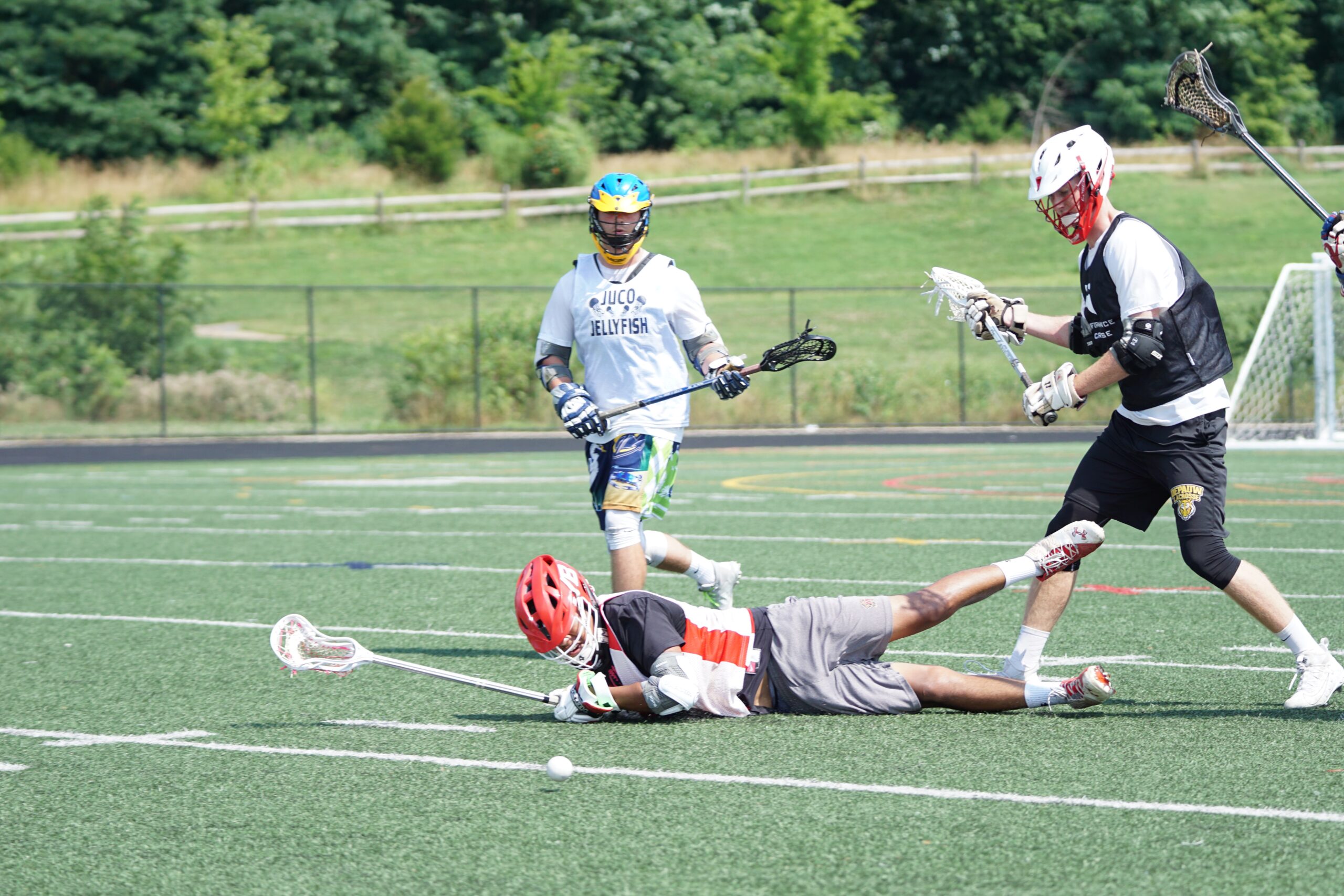Today we are going to discuss 4 Important Questions About Sports Injury Lawsuits.
Millions of Americans are hurt during sports and exercise activities each year. If you have lost your ability to work or suffered major losses related to a sports injury, you may wonder whether you have grounds to request damages through a personal injury lawsuit. The following four questions (and their answers) can help you get a clearer idea of your legal situation, challenges, and options.
1. How Do Sports Injuries Happen?

Contact sports such as football may feature high-impact collisions that result in concussions, herniated discs, broken bones, and other serious injuries, including head injuries. Sports that place heavy demands on the joints can produce dislocated shoulders, ruptured knee ligaments, pulled hamstrings, and torn muscles.
The most serious and debilitating sports injuries involve injuries to the brain and spinal cord. These injuries can leave the participant with lingering or permanent paralysis, cognitive impairment, chronic pain or numbness from nerve damage, and other profound limitations.
Personal injuries associated with sporting events don’t always happen as a direct result of the sports activity itself. For instance, you might sustain a serious personal injury if a fight breaks out on the playing field or if a vital piece of sports equipment breaks at an inopportune moment.
2. Legal Responsibilities In Sports Injuries
The assumption of risk doctrine aims to prevent athletes from filing frivolous personal injury lawsuits. According to this doctrine, sports participants who know the injury risks of their particular sport accept that risk when they agree to play. This acknowledgment extends to accidental injuries caused by fellow players.
However, the assumption of risk doctrine doesn’t absolve all parties from every possible sports injury scenario. For example, while you might reasonably expect a broken nose from a punch in the face while boxing, a punch in the face sustained while golfing does not fall reasonably under a golfer’s assumed risk.
You may fairly hold a player who injured you deliberately or through reckless behavior liable for your injury. You might also hold a sports institution liable for failing to uphold reasonable safety standards, such as neglecting to replace a cracked bat or remove ice or water from a slick playing surface.
Don’t assume that a release form or liability waiver that you signed beforehand automatically invalidates your right to pursue legal action against the owner of a sporting facility. If that owner’s negligence or recklessness led to your injury, a skilled attorney may still manage to put your case forward convincingly.
3. How Do You Establish Your Sports Injury Lawsuit?
Collect as much hard supporting evidence of your injury and its circumstances as you can. Valid evidence might include video of the incident, key witness testimony, medical treatment records, associated hospital bills, and evidence of lost wages caused by your injury.
Your attorney must also establish that the circumstances of the sports injury fall outside the assumption of risk doctrine. You may need evidence of dangerous playing conditions, poorly-maintained equipment, or a wanton attempt to hurt you.
Keep in mind that Missouri gives plaintiffs a maximum of five years to file any type of personal injury lawsuit. If you fail to file your case before this statute of limitations runs out, you may have very little chance of ever bringing it to trial.
4. What Kinds Of Damages Can You Request?
Missouri follows the principle of pure comparative fault, meaning that the plaintiff may only receive compensation for the percentage of liability assigned to the defendant. Depending on the situation, you may seek compensation for medical/therapy bills, lost wages, inability to earn income, and (if a loved one died due to the sports injury) funeral expenses.
If you have a strong case, the defense may settle with you out of court. Just make sure that the settlement amount will adequately meet your needs.
Cantor Injury Law can discuss your sports injury with you and help you decide on the appropriate legal response to it. Contact our law office today for a free, confidential consultation.
After reading this post we hope you have a better understanding of these 4 Important Questions About Sports Injury Lawsuits. Contact Cantor Injury Law today to discuss your possible case with us.
Negligence in Sports Cases
In some instances, sports injuries occur due to negligence on the part of players, coaches, or sports institutions. Negligence can manifest in various forms, such as failure to maintain safe playing conditions, inadequate supervision, or reckless behavior. When negligence is a factor, injured individuals may have grounds to pursue legal action against the responsible parties.
Establishing negligence in sports injury cases often requires thorough investigation and gathering of evidence. This evidence may include eyewitness testimonies, medical records, and documentation of unsafe conditions or equipment failure. Additionally, demonstrating that the injury resulted from actions beyond the inherent risks of the sport is crucial in proving negligence.
While the assumption of risk doctrine provides some protection to sports participants, it does not shield individuals or entities from liability in cases of gross negligence or intentional harm. Therefore, it’s essential for those injured in sports-related incidents to consult with experienced legal counsel to assess their options for seeking compensation.
Navigating the complexities of sports injury lawsuits can be challenging, but with proper legal guidance, injured individuals can pursue justice and obtain the compensation they deserve for their injuries and losses.
Working With A Lawyer
When dealing with sports injury cases, having a knowledgeable and experienced personal injury lawyer by your side can make all the difference in achieving a favorable outcome. At Cantor Injury Law, we understand the complexities involved in these cases and are committed to providing our clients with the highest level of legal representation and support.
Here’s how working with a lawyer from Cantor Injury Law can benefit you:
- Legal Expertise: Our team of personal injury lawyers specializes in handling sports injury cases. We have a deep understanding of relevant laws, regulations, and legal precedents, allowing us to develop effective strategies tailored to your unique situation.
- Case Evaluation: We offer a free, confidential consultation to assess the merits of your case and discuss your options moving forward. During this initial meeting, we’ll listen to your story, review any evidence you have, and provide honest and straightforward legal advice.
- Investigation and Evidence Gathering: Building a strong case requires thorough investigation and gathering of evidence. We will work diligently to collect relevant documents, interview witnesses, and consult with experts to establish the facts surrounding your injury and identify liable parties.
- Negotiation and Advocacy: Our lawyers are skilled negotiators who will aggressively pursue the compensation you deserve. Whether through settlement negotiations or litigation, we will advocate tirelessly on your behalf to ensure your rights are protected and that you receive fair and just compensation for your injuries and losses.
- Compassionate Support: Dealing with a sports injury can be physically, emotionally, and financially draining. We understand the challenges you’re facing and are here to provide compassionate support every step of the way. From guiding you through the legal process to answering your questions and addressing your concerns, we’ll be with you through thick and thin.
At Cantor Injury Law, we are dedicated to helping injured individuals seek justice and obtain the compensation they need to move forward with their lives. If you’ve been injured in a sports-related incident, don’t hesitate to contact us for a free consultation. Let us put our experience and expertise to work for you.
FAQs About Sports Injury Lawsuits
Q: How Do Sports Injuries Typically Occur?
A: Sports injuries can arise from high-impact collisions in contact sports, resulting in conditions like concussions, herniated discs, and broken bones. Other sports can cause joint injuries, such as dislocated shoulders or ruptured knee ligaments. The most serious injuries involve the brain and spinal cord, leading to paralysis, cognitive impairment, and chronic pain. Additionally, injuries can happen due to unexpected events like fights or equipment malfunctions.
Q: When Is Someone Else Liable For A Sports Injury?
A: While the assumption of risk doctrine suggests that players willingly accept certain risks associated with their sport, it doesn’t cover every injury scenario. Injuries resulting from deliberate or reckless behavior by another player, or negligence by a sports institution (like using poorly-maintained equipment), can be grounds for liability. However, signing a release form or liability waiver doesn’t always prevent you from taking legal action if negligence played a role in the injury.
Q: What Steps Should One Take To Establish A Sports Injury Lawsuit?
A: It’s crucial to collect as much evidence as possible, such as videos, witness testimonies, medical records, and evidence of lost wages. To build a case, one must demonstrate that the injury didn’t merely result from accepted risks of the sport. This could involve highlighting dangerous playing conditions, faulty equipment, or deliberate harm. In Missouri, there’s a five-year statute of limitations for filing personal injury lawsuits.
Q: What Types Of Compensation Can Someone Seek In A Sports Injury Lawsuit In Missouri?
A: In Missouri, the principle of pure comparative fault applies, meaning compensation is based on the percentage of liability assigned to the defendant. Damages can include medical bills, lost wages, potential loss of future income, and funeral expenses in case of a fatality. Depending on the strength of the case, out-of-court settlements are possible.
Q: Who Can Help In Evaluating And Pursuing A Sports Injury Lawsuit?
A: Cantor Injury Law offers consultations and can provide guidance on the right legal approach for sports injury cases. It’s advisable to discuss any potential case with them to understand the best course of action.
Q: Are schools liable for sports injuries?
A: When it comes to sports injuries that occur in school settings, liability can be a complex issue. While schools generally have a duty to provide a safe environment for students, the question of liability for sports injuries depends on various factors, including the circumstances surrounding the injury and the actions (or inactions) of the school.
